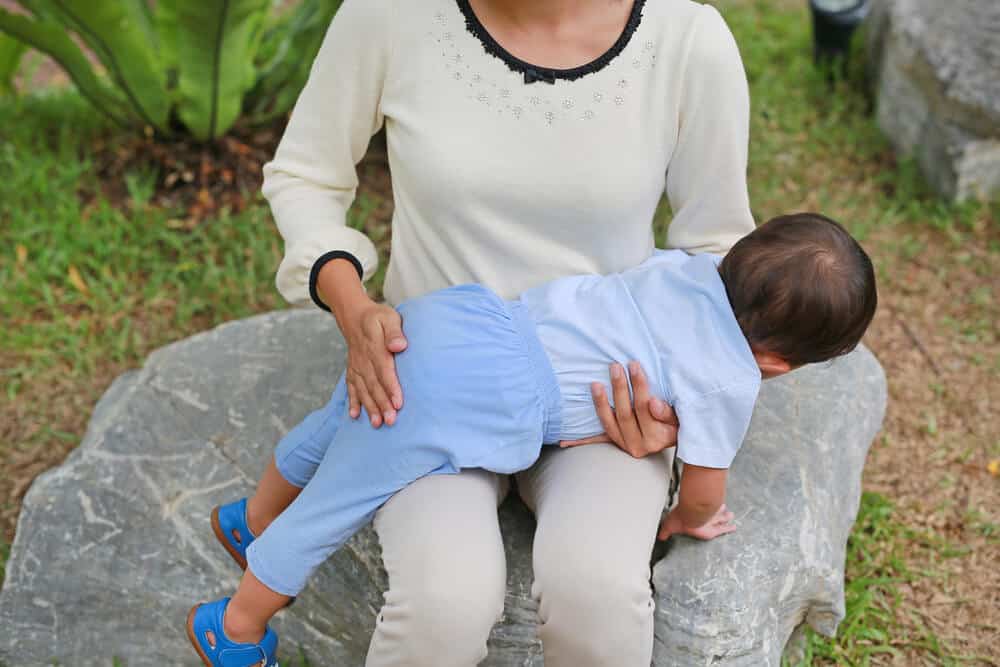Legal Considerations for Parenting Discipline in New Jersey
Know How to Legally Discipline your Child, Minimizing the Risk of Being Falsely Accused of Abuse

When children break household rules, fight with their siblings, or have poor academic performance, parents feel the need to use discipline. Disrespectful behavior or rudeness towards authority figures such as teachers, caretakers, family friends, and adults, in general, is frequently not tolerated. Lying, breaking the law, or not completing chores or responsibilities can also cause conflict. Excessive or inappropriate use of technology, such as spending hours playing video games, chatting on social media, or using technology to bully someone else, are actions parents may find unacceptable. The ever-famous temper tantrums at the grocery store, while running errands at the mall, or any other outing are not well-received.
Avoid Blurring the Limits Between Abuse and Discipline in NJ
Disciplining children is an important part of parenting, but avoiding crossing the line into abusive behavior is crucial. The following are some suggestions as to how it can be done. Instead of focusing solely on punishment, try to incorporate positive reinforcement into your disciplinary approach. For example, praise your child for good behavior and acknowledge their efforts when they make positive changes.
Make sure your child understands the rules and consequences of their actions. Be consistent with enforcing consequences, but ensure they are appropriate for the situation and your child’s age. Consistency is one of the essential components to discipline. Physical punishment, such as spanking, can easily cross the line into abusive behavior. Instead, try using non-physical forms of discipline, such as time-outs, taking away privileges, or having a serious talk with your child.
It’s important to remain calm and composed when disciplining your child. If you feel angry or frustrated, take a step back and take a break to cool down before continuing the conversation. Remember that a resolution for the negative behavior is necessary but does not have to be immediate. Seek help if needed. If you’re struggling with disciplining your child or find yourself frequently crossing the line into abusive behavior, seek help from a professional, such as a therapist or counselor. Remember, disciplining your child should always be done with love and respect and never out of anger or frustration. You can discipline your child without crossing the line into abusive behavior by using positive reinforcement, clear rules and consequences, non-physical forms of discipline, and staying calm.
The Controversy Surrounding Spanking
Spanking is a form of physical punishment in which a child is struck on the buttocks with an open hand or an object, such as a paddle or a belt. Spanking is often used as a disciplinary method to correct a child’s behavior, but it is controversial and has been debated by parents, experts, and lawmakers. Some parents believe spanking can effectively discipline their children and teach them right from wrong. Others argue that spanking can harm a child’s physical and emotional well-being and may teach them that violence is an acceptable way to solve problems. Although the tides are beginning to turn away from spanking, the attitude by parents of, “I was spanked as a child, and I turned out OK,” prevents many parents from seeking alternatives to physical punishment.
How Can Spanking Affect a Child?

Helpful Tips To Apply Discipline and Prevent Legal Issues
New Jersey’s laws about spanking are somewhat murky. Spanking isn’t illegal but is considered abuse if the child has welts, injuries, or bruises. Therefore, utilizing non-physical techniques avoids any concern about whether spanking is abusive. Using positive reinforcement, praise your child for good behavior and acknowledge their efforts when they make positive changes. This can help reinforce good behavior and encourage your child to continue making good choices.
Instead of spanking, consider using a time-out to discipline your child. Time-outs can effectively allow your child to calm down and reflect on their behavior. Another option is to take away privileges, such as screen time or social outings, as a consequence for misbehavior. This can be an effective way to teach your child that their actions have consequences. Logical consequences involve allowing your child to experience the natural consequences of their behavior. For example, if your child refuses to do their homework, they may receive a lower grade or have to stay after school to make up the work.
Talking with your child and explaining why their behavior was inappropriate can effectively teach them right from wrong. This can help your child understand why their behavior was wrong and what they can do differently in the future. Remember, effective discipline involves setting clear expectations, providing consistent consequences, and communicating with your child in a way that is respectful and non-threatening. Using non-physical forms of discipline, you can teach your child right from wrong without resorting to violence.
Ways to Handle Being Falsely Accused of Child Abuse for Excessive Corporal Punishment in NJ
If you are falsely accused of child abuse, it can be a very distressing and challenging situation. It’s essential to take the accusation seriously but also to be proactive in protecting your rights and reputation. Here are some options to consider if you are falsely accused of child abuse:
- Seek legal advice. Contact a lawyer who specializes in family law or criminal defense as soon as possible. They can advise you on your legal rights and help you navigate the legal process.
- Document evidence. Keep detailed records of all communications with authorities and anyone involved in the investigation. This can include emails, phone calls, and letters. Keep any evidence supporting your innocence, such as medical records, witness statements, or photographs.
- Being falsely accused of child abuse can be emotionally challenging, and seeking support from friends, family, or a therapist is essential. They can offer you emotional support and help you cope with the stress and anxiety of the situation.
- Stay calm and composed during interviews with the authorities. Only provide information with your attorney present, no matter how nice the police seem. They are not your friends and must accept your silence until your lawyer arrives.
- Remember, being falsely accused of child abuse is a serious matter that requires a proactive and strategic approach.
Request a Free Consultation with Our Seasoned Lawyers to Defend from Your Child Abuse Charges in South Jersey
At The Bronzino Law Firm, we will offer you the guidance and legal advice you need if you face child abuse charges. We can help you understand your legal rights, explain the charges against you, and advise you on the best course of action. Our lawyers will work with you to develop a strong defense strategy in Sea Bright, Asbury Park, Eatontown, Monmouth Beach, Colts Neck, Sea Girt, Rumson, Manasquan, and towns across Monmouth and Ocean Counties. This can include gathering evidence supporting your innocence, challenging any evidence presented against you, and cross-examining witnesses.
If you’ve been accused of child abuse based on allegations that involve spanking or excessive discipline, it’s essential to seek the assistance and legal advocacy of an experienced attorney. Call our South Jersey offices today at (732) 812- 3102 or complete our online form to schedule a confidential free consultation.








